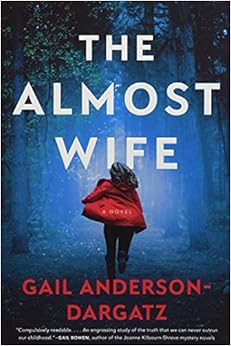2.5 Stars
I enjoyed the author’s previous books, especially The Cure for Death by Lightning and A Recipe for Bees, but I was disappointed with this domestic thriller.
Kira is engaged to Aaron, an older, financially successful man. She has a good life with a daughter Evie and a nice house. Her only problems are an anxious teen step-daughter Olive and Madison, Aaron’s second wife who is stalking Kira and Olive. Madison’s erratic behaviour has the emotionally fragile Kira desperately trying to protect her family. She flees and takes Evie and Olive to Manitoulin Island where she spent her youth and owns a cottage.
A major problem is that events make little sense. After having a child, Kira is worried about announcing her engagement with the man who is presumed to be the child’s father? Olive’s behaviour in Little Current stretches credulity. And such an anxious teen would just run into the bush? Kira, who has lived in the city for years, has a basic outdoor survival kit with her? A mother would leave her infant alone in the truck, not once but several times?! Someone breaks a window to get into a building and then locks the door afterwards?
Being familiar with Manitoulin Island, I loved the setting. The dark and stormy night cliché, however, I could have done without. It is so obviously used to create suspense, but it is so contrived. The flashbacks to Kira’s childhood when her mother poisoned Kira’s relationship with her father are so obviously a parallel to what is happening to Olive – I can picture the storyboard here.
Imagery is also forced and unnatural: “Spiderwebs, covered in dew and catching the low sun, were suddenly visible in the long, uncut grass of the yard, hundreds of them, thousands of them. They shimmered, vibrating in the morning breeze. Until now, I’d had no idea they were there – these traps, all these fucking traps” and “the heavy birds lifted into the air, flying so low as they passed that I could not only hear the whistling of their wings, but feel the rush of air dislocated by their labored flight.” And why the American spelling?
The characters are difficult to like or care about. Kira, for instance, is so scattered and reckless. Everyone seems shallow. The fact that more than one person blames problems on a difficult childhood suggests a general lack of maturity. The motivation of the villain for all behaviour is fear of abandonment?
The author’s attempt to write a thriller is not successful. The result is trite, contrived, and predictable. This seems a degradation of her writing skills.







